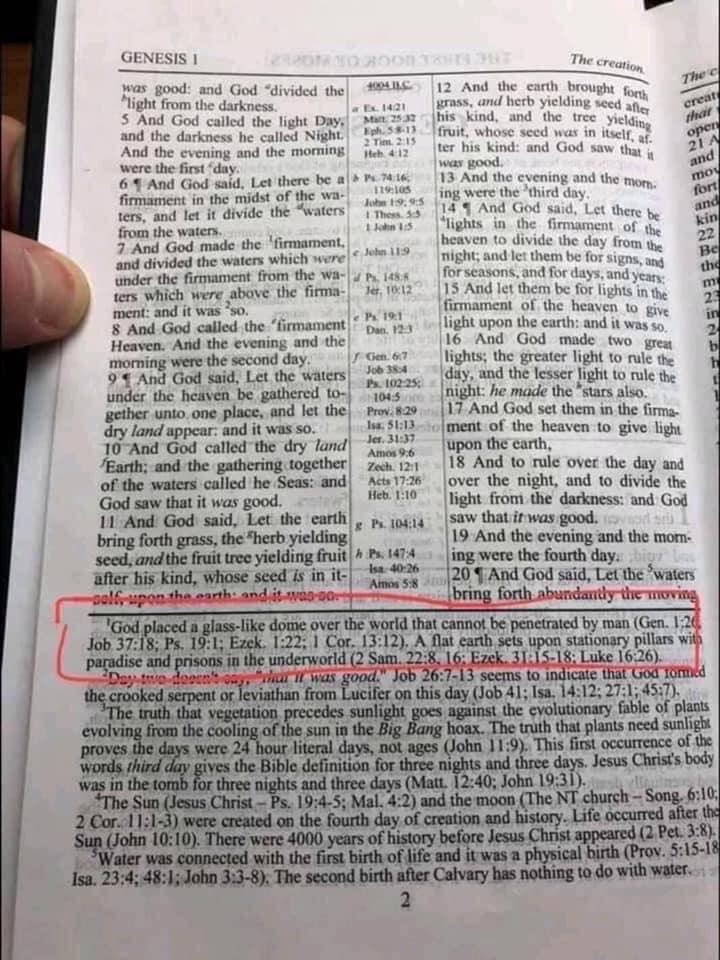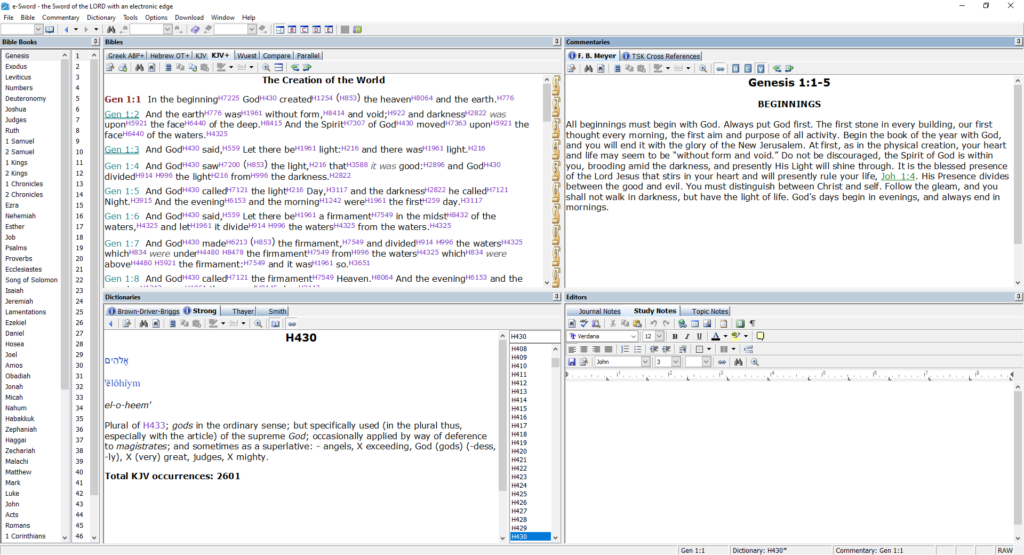I got into a discussion with someone who believes in a flat earth. Along the way, someone said, “The Bible is correct: Earth is protected by a water filled glass dome to contain the barometric pressure, warm temperatures and humidity we experience on Earth.” I asked, “Where in the Bible does it say that the firmament is glass?” In response, I received the following image showing a highlighted footnote:

Friends, when studying the Bible, please remember that footnotes in your Bible are NOT part of the actual Bible. They were not written by the original authors of the Bible, nor were these footnotes approved by the original authors. The footnotes below the footnote line are notes and commentaries inserted into the Bible by editors and publishers. As such, they do not come with the same assurance of truth as the actual Bible text above the footnote line. In the image above, the two columns on the left and the right above the footnote line are the actual text of the Bible. The narrow middle column is cross-references provided by the publisher. These are also NOT part of the original Bible, though they are helpful because the cross-references are provided without comment.
I challenge readers to review the Biblical references highlighted in the footnote in context. My post on Bible study tools will be helpful here. Personally, I don’t see anything in them that conclusively supports the statements given by the editor of this footnote. I cannot conclude a flat earth from the Bible passages cited in the footnote. To be fair, a flat earth is not disproven in these passages, either. There is nothing to say that the firmament does not completely surround the earth. The word “firmament” is only used in the Old Testament, which is translated from Hebrew רָקִיעַ (râqı̂ya‛). The Ezekiel 1 reference almost sounds like some sort of space helmet. Given that additional descriptors are used in the verse, we cannot conclude that these descriptors apply to all usage of the word “firmament”.
The verse at 1 Corinthians 13:12 from the New Testament uses a different word entirely. The New Testament was translated from Greek. In this verse, ἔσοπτρον (esoptron) is translated in several versions of the Bible as a “mirror”. Ancient mirrors were often made of metal. Some glass mirrors from the time have also been found, but these were made of blown glass and thus were distorted. Also, glass of the time had some color in it, and thus would have been dark. The clear glass we know today had not yet been developed. In my opinion, 1 Corinthians 13:12 does not rightly belong at all in a discussion of what a “firmament” is.
There is nothing in the verses cited in the footnote that could convince me to set aside modern man’s experience of the nature of Earth gained from aviation within our atmosphere and journeys out into space. The physical body of Earth is roughly a sphere. If someone wants to claim that Earth is toroidal, a case could be made for that as well when the magnetic body is included.
The point here is that a footnote in a Bible is not the Bible. These footnotes are simply the opinions of commentators; as such, they may or may not be correct. They do not come with the same assurances of truth as does the content of the Bible itself. As such, commentator statements need to be studied out carefully. Where there are questions or conflicts, the matter should be brought to the Father in prayer for His clarification, that you may know in spirit the truth of all things.
